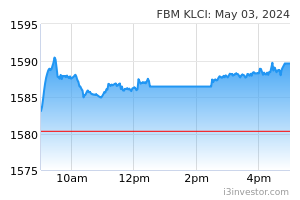Malaysia calls for more public-private partnerships to drive energy transition in APEC
Publish date: Fri, 16 Aug 2024, 09:45 AM
LIMA (PERU): Malaysia has called for more public-private partnerships (PPPs) within the Asia Pacific Economic Cooperation (APEC) region to advance energy transitions among member economies while ensuring inclusivity and sustainability, said Deputy Prime Minister Datuk Seri Fadillah Yusof.
The deputy prime minister said that by creating supportive environments through regulatory frameworks that provide stability and predictability for investors and fostering ecosystems through research and development, the APEC member economies could further accelerate the development and deployment of clean energy solutions.
"PPPs are vital in mobilising resources, expertise, and innovation for the energy transition," he said yesterday during his intervention at the 14th APEC Energy Ministers' Meeting (EMM14).
Fadillah said Malaysia, for instance, has established several successful PPP models that may be referenced across the APEC region.
For example, he said the country's Net Energy Metering (NEM) programme, expanded through NEM 3.0, allowed consumers to generate electricity through solar photovoltaic installations.
Fadillah, who is also the energy transition and water transformation minister, said Malaysia's large-scale Solar (LSS) programme, through competitive bidding, has attracted significant private sector investment, expanded renewable capacity, created jobs, and stimulated local economies.
Furthermore, he said the Renewable Energy Certificates and Self-Consumption programmes provided avenues for consumers and businesses to collectively contribute to Malaysia's goal to increase renewable energy in its power mix.
In addition, Fadillah said Malaysia has made significant strides by recently launching the Corporate Renewable Energy Supply Scheme, which aims to open up third-party access to the national electricity grid.
"This will allow electricity buyers to negotiate pricing directly with renewable energy power plants, fostering healthy competition among green energy developers and attracting more local industry players.
"This move aligns with our goal of increasing renewable energy composition to 70 per cent of total generation capacity by 2050," he said.
Fadillah emphasised that energy transition must be holistic, integrating sustainability, inclusivity, and just.
"The country is also committed to harnessing innovative strategies and technologies to achieve these goals.
"Our National Energy Transition Roadmap (NETR), launched in July 2023, emphasises a just and equitable transition towards renewable energy sources. This roadmap outlines guiding principles and initiatives to ensure that the energy transition benefits all segments of society," he said.
The NETR advocates for a collective effort involving government agencies, private sectors, and civil society, and the collaborative strategy is essential for ensuring that no community is left behind.
Meanwhile, Fadillah added that Malaysia is also exploring innovations in energy storage and grid management technologies, such as hydrogen as a clean energy carrier and advanced battery technologies, to support renewable energy integration and ensure energy security and resilience.
"To facilitate knowledge transfer and capacity building of best practices, Malaysia is pursuing a multifaceted approach through cross-sectoral cooperation, regional collaboration and capacity building initiatives," he added.
- BERNAMA





















